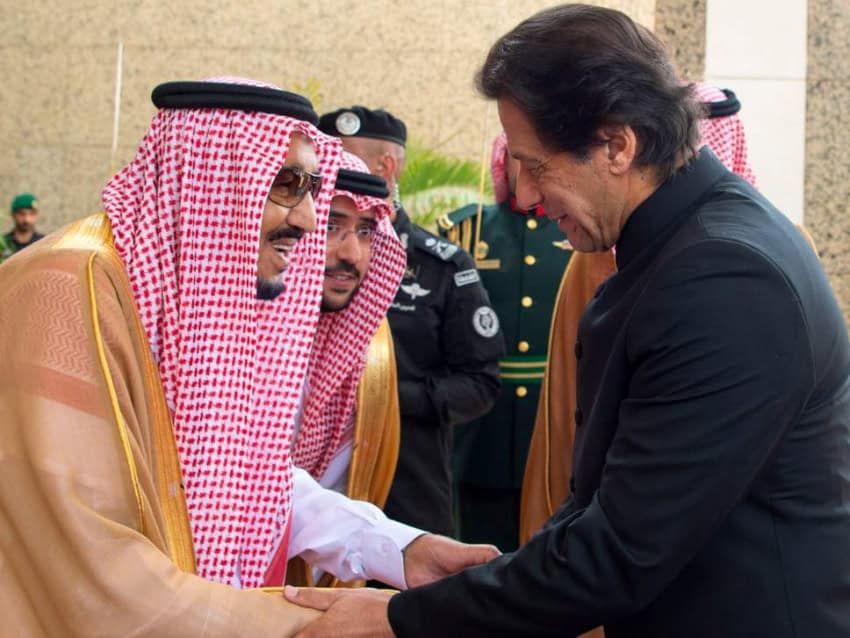Facing an imminent Balance of Payments crisis, the incumbent government after much deliberation and multiple visits to the Kingdom of Saudi Arabia (KSA) was finally able to close a deal. The same was postulated in a previous column, that one of the options for Pakistan was getting funding from a friendly Islamic country. Although explicit costs are largely in terms of interest rates, but implicit costs in wake of a recent turmoil the Kingdom has found itself in, can also not be ignored.
The current Prime Minister while resorting to Twitter in previous years always showed disdain in relying on such funding. In an ironic turn of events, he also had to rely on the same deficit financing, from friendly Islamic countries.
https://twitter.com/PTIofficial/status/513371217181417472
Friendly Lender of Last Resort
The Kingdom has always provided assistance to Pakistan during times of crisis, and we have had our more than fair share of them. Over the last twenty-three years, Saudi Arabia, through the sovereign, and through its largely controlled multilateral institution, Islamic Development Bank (IDB), has provided almost USD 9.5 billion of medium term, and short-term loans.
Almost 86 percent of the funds that were provided have been through IDB – primarily to support deferred oil payments. Pakistan being a close ally also continues to may principal repayments, and over the last twenty years, has made more than USD 6.5 billion in principal repayments back to KSA.
There is also a lot of confusion regarding the nature of such loans, and whether any interest payments are associated with them. Most loans (if not grants) from KSA either have a fixed interest rate, or are linked to LIBOR (London Inter Bank Offer Rate) – hence, they are not gifts, they are loans at a predominantly market interest rate.
During the last twenty years, Pakistan has paid more than USD 620 million in interest to the Kingdom. The financial relationship between the Kingdom and Pakistan has been fairly fluid, with regular movement of loans, and repayments happening over the years.

The Package
The recent package negotiated between the two governments enlist a USD 3 billion deferred oil credit facility, which will be available for three years – as well as USD 3 billion for budgetary support. The latter being an amount which would be transferred to Pakistan, but which Pakistan will somehow won’t be able to use.
A deferred oil credit facility simply means that Pakistan can import oil up to an amount of USD 3 billion from KSA, and pay the associated amount in one year. As oil imports constitute almost 30 percent of Pakistan’s import bill, such a facility allows Pakistan to keep importing oil, but deferring payment for one year, while conserving valuable foreign exchange in the process.

Although not a direct cash injection, but it does provide necessary breather required for the government to shore up foreign exchange reserves, and reduce the Current Account Deficit.
The USD 3 billion provided for budgetary support will just sit there in our Foreign Exchange Reserves, and look pretty, and may also attract an interest cost as well. The terms of the facilities negotiated are still not clear, and it is expected that the government in-line with its vision of transparency will disclose necessary details in due course.
All Roads Still Lead to IMF
Although the package will provide some breathing space, and take care of two and a half months of oil imports, but an immediate cash injection is still required to make principal and interest payments on Pakistan’s external debt, which is estimated to be in excess of USD 7.5 billion over the next 12 months. Funding from IMF still remains essential make necessary payments, and provides support to Balance of Payments.
Although accompanied by stringent terms, such structural adjustments if executed in true spirit can ensure that Pakistan may not have to go back to IMF, or to any other friendly country in the next few years.














